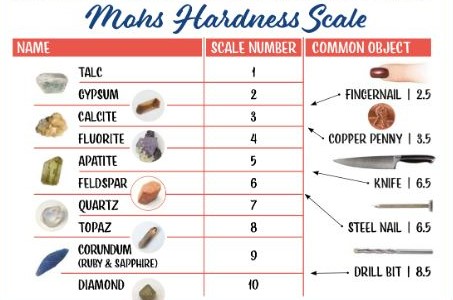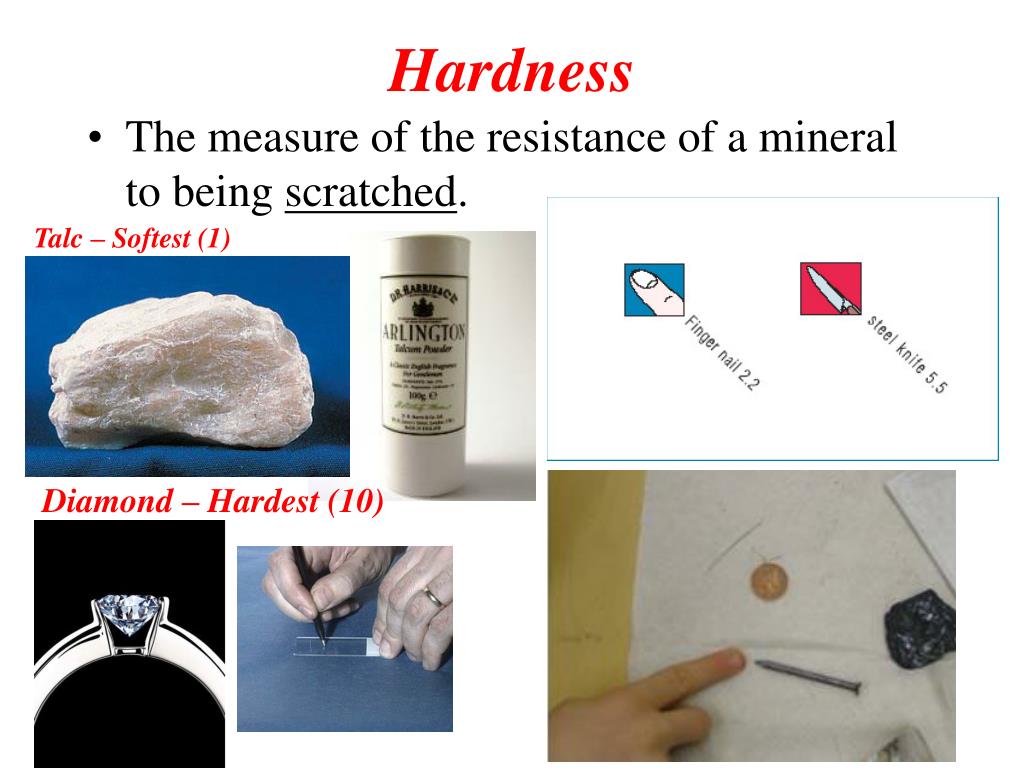Talc is the softest mineral found on earth reaching just 1 on mohs scale of hardness it is often used to make talcum powder

Talc: The Softest Mineral on Earth

Talc, a unique mineral with remarkable characteristics, holds the distinction of being the softest mineral found on Earth. Ranking just 1 on the Mohs scale of hardness, talc is renowned for its smoothness and ability to be easily scratched by virtually any object. This exceptional softness makes talc a versatile mineral with widespread applications in various industries. One of its most common uses is in the production of talcum powder, appreciated for its absorbent properties and silky feel on the skin.
The Mohs scale of hardness, developed by Friedrich Mohs in 1812, is a system used to measure the relative hardness of different minerals based on their ability to scratch one another. On this scale, talc occupies the lowest position, highlighting its exceptionally low hardness compared to other minerals. To put this into perspective, talc is even softer than household substances like fingernails and gypsum.

While talc may be extremely soft, this characteristic does not diminish its significance. In fact, it is this very softness that contributes to its wide range of applications. The unique properties of talc make it an ideal ingredient in industries such as cosmetics, pharmaceuticals, plastics, ceramics, and paint. Its delicate nature provides a smooth texture and helps products like talcum powder absorb moisture, prevent chafing, and maintain a dry and fresh feeling.
The cosmetic industry extensively employs talc due to its ability to absorb excess oils and reduce shine, making it an essential component in powders, foundations, eye shadows, and other beauty products. Furthermore, talc’s softness allows it to glide effortlessly over the skin, ensuring a seamless application and a luxurious feel.
In pharmaceuticals, talc finds application in various medicinal products and pills. Its excellent lubricating and anti-sticking properties enable smooth manufacturing processes and prevent drugs from clumping together. Talc also serves as an excipient, a substance used as a filler or carrier for active pharmaceutical ingredients.
Beyond cosmetics and pharmaceuticals, talc plays a vital role in several other industries. In the manufacturing of plastics, talc acts as a reinforcing filler, enhancing the strength, rigidity, and dimensional stability of plastic products. Similarly, it improves the strength and durability of ceramic products by acting as a fluxing agent during their formation.
In the paint industry, talc contributes to the smooth and uniform appearance of coatings, providing excellent coverage and hiding imperfections. Its low abrasiveness minimizes damage to surfaces, making it an ideal ingredient for delicate applications.
Talc’s remarkable softness and versatility have positioned it as an invaluable mineral in numerous industries. Its unique combination of attributes, from its absorbent properties to its silky texture, continues to make it a highly sought-after ingredient in various products. Whether it is used in talcum powder, cosmetics, pharmaceuticals, plastics, ceramics, or paints, talc’s unparalleled softness ensures its ongoing relevance and usefulness.
Source: Rock & Gem Magazine
Related Posts
Quick Links
Legal Stuff

